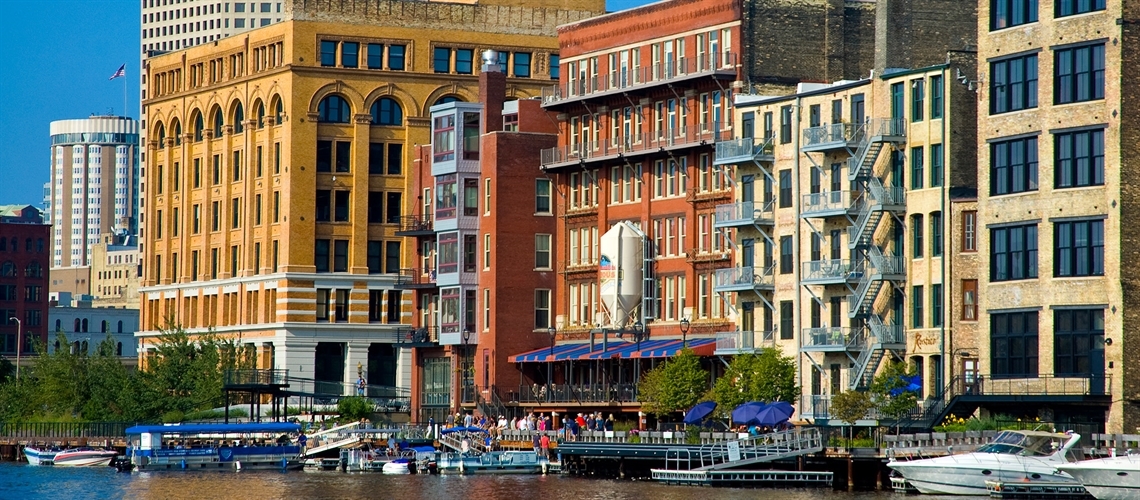Productive
2020 Goal: New tools to support riverfront productivity

Ian Freimuth
Former industrial buildings along the Milwaukee River now contain homes and businesses with boat access.
An array of new economic development incentives will attract new businesses of all types and sizes: concessions run by neighborhood entrepreneurs, reuse of historic buildings and structures, advanced manufacturing, tourism and hospitality, breweries, and more.
Each incentive program must be managed transparently and aligned with Our Great Rivers, Chicago’s revamped riverfront industrial corridor land use plans, and other community and city priorities.
For example, a new micro-loan program for developing concessions—particularly for capital needs, such as purchasing food carts or renting equipment—could activate riverfront spaces while creating local jobs, building community pride and enhancing neighborhood wealth.
These incentives also could support infrastructure that makes locating on the riverfronts more attractive to businesses. Examples of needed improvements include fixing river walls on the Chicago and Calumet rivers, transforming hardened shorelines into more ecologically productive living shorelines and expediting riverfront trail development to better connect private riverfront to public rights of way.
Making it happen
- Increase marketing of the existing Riverfront Improvement Fund to support shoreline maintenance, naturalization and trail connectivity.
- Establish a micro-loan program to support concessions owned and operated by neighborhood residents, and identify priority concession types and locations in parks, forest preserves and other public spaces.
- Explore adding all or parts of Chicago’s riverfronts to the State of Illinois’ River Edge Redevelopment Zone program.
- Ensure that new incentives created by the City’s revamped industrial corridor planning, Neighborhood Opportunity Fund and other financing initiatives support implementation of Our Great Rivers, and are guided by robust community engagement.
- Conduct a comprehensive assessment of riverfront development incentives in other North American cities, and participate in peer exchanges with these cities.
Key players
Chicago Dept. of Planning and Development, Chicago Dept. of Business Affairs and Consumer Protection, Chicago Park District, Forest Preserves of Cook County, Ill. Dept. of Commerce and Economic Activity, TIF and SBIF managers, area industrial councils and business associations, communities and community organizations, private business and local entrepreneurs
Our rivers, our role
- Encourage your alderman and existing riverfront businesses to pursue currently available resources, such as the Riverfront Improvement Fund.
- Pursue a riverfront business of your own. Contact the Chicago Park District or Forest Preserves of Cook County to learn how to get going.
Back to goals